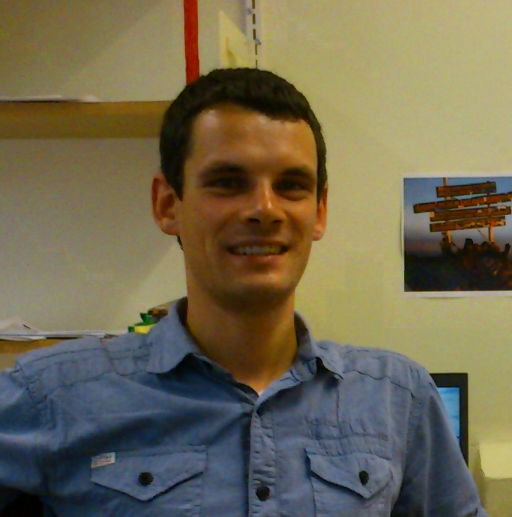- The best thing is that you can organize your day yourself!
Martin takes Phd in boundary layer Meteorology. His project will lead to an improved understanding of turbulent momentum transfer in the lower atmosphere which in turn will improve today's weather forecast.

Main content
Name: Martin Flügge
Age: 29
Education: Bachelor in natural science (meteorology and oceanography). Master in geophysics – climate, at the University of Bergen.
Takes PhD in: Boundary layer meteorology
Supervisors: Joachim Reuder, Alastair Jenkins
Why did you choose to study meteorology?
Actually, I did a fortunate mistake! As I started my bachelor degree I was enrolled in physics. A presentation about a meteorological and a geoscience topic were given as part of one of the introduction courses. The meteorological topic was extremely boring for me, whereas the geoscience topic about earthquakes was much more interesting than physics. Weeks later the university arranged its yearly information week where students can visit the other institutes and hear talks about other studies programs. Still impressed by the geoscience introduction lecture I decided to attend to the geoscience talk. (Un)fortunately, I went to the wrong institute and ended up in the meteorology and oceanography lecture. And suddenly this turned out to be even more interesting than anything else! A few weeks later, I was enrolled as a student at the GFI where I took my bachelor and master’s degree.
Why should new applicants to UoB choose to study meteorology?
The question is “Why not!” Everybody is talking about bad weather, climate change and renewable energy. Every day, we are confronted with meteorology and oceanography. Look at the back of today’s newspapers – what do you find? Yes, the weather forecast! Look inside the newspapers - you may find an article concerning climate change or renewable energy! Meteorology and oceanography is one of the important topics of the day and highly concerns the future as climate change and development of renewable energy becomes more important!
Why did you choose to take PhD?
One might think 5 years of studies are enough but I want to know more about the interaction between the ocean and the atmosphere. This is important if one want to place offshore wind farms in deep water and to improve climate and weather models.
Tell about your PhD-project.
So how do we investigate air-sea interaction? On might see my supervisors and me as marine meteorologist because we take measurements over the sea. High resolution measurements are needed to investigate air-sea interaction. At the GFI we have a turbulence measuring system for direct covariance flux measurements. This system is placed on a buoy and deployed off the coast of middle Norway. The system is able to measure the exchange of heat and momentum fluxes between the atmosphere and the ocean. This will improve our understanding of the turbulent momentum transfer in the lower atmosphere. In addition, understanding the air-sea interaction will certainly improve today’s weather forecast!
What is the best thing about taking a PhD? What is challenging?
The best thing is that you can organize your day yourself! Bad weather outside – you work more today. Nice weather outside – you just take the day off! Want to sleep longer today? Just do it and work longer this evening! In addition, you can travel to other countries and you meet a lot of people. After a while, you might even feel to be important. But there is also another side of a PhD. You have to work hard to fulfil the requirements. Research is time consuming and you have to keep many deadlines. Sometimes 24 hours are just not enough for a day! It is also challenging to organise your day. Nobody comes and tells you what to do and sometimes it can be difficult to decide if you have done enough today.
Do you have some advice to master students considering taking a PhD?
Just do it!
